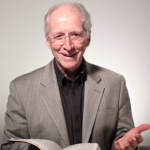 If the Bible Has Been Added To, Can We Trust It?
If the Bible Has Been Added To, Can We Trust It?
A listener to the podcast writes in. “Pastor John (Piper), how can I trust the Bible if there have been so many add-ins, such as Mark 16:9–20 and John 7:53–8:11 and 1 John 5:7–8. If these verses have been added into the Bible, and should not have been, how do we know other things have not been added into the Bible as well?”
The answer precisely to the question as it is posed is that we use the same criteria to know about other passages that we used to know that these three texts were additions. In other words, if there is a science that can spot these three texts that he mentioned as not part of the original biblical manuscripts, then that same science, in the same way, can perform the same function for all the other passages. There is the answer.
Now, let’s step back and paint the larger picture. The Bible was written in Hebrew and Greek centuries before the printing press. The printing press was invented about 1450 AD. The first original language biblical manuscript was printed 1516. That means that these handwritten documents called manuscripts were handed down — by human copying — for centuries. And the question, really, is: Do we have today the same Greek and Hebrew texts in front of us to translate into English or whatever language or to read in Greek or Hebrew, do we have the same texts that correspond essentially with the original documents that God inspired when they wrote them down?
The science of textual criticism — there is the phrase, textual criticism — that is what this branch of scholarship is called. That science is devoted to answering that question. It specializes in comparing thousands of Greek and Hebrew manuscripts and deducing from those comparisons where there are differences between two or more dozen documents and, where there are differences, which reading is the more likely to be original. Which one is original?
Here is the reason we may have strong confidence that the science of textual criticism is successful in discerning the original wording of the manuscripts: There are over 5,800 Greek manuscripts. Leave out the Old Testament for a moment and just think Greek. There are 5,800 Greek manuscripts — either whole New Testament books or fragments. This is incredible if you know your manuscript history. In other words, when the text critics sit down to do their work, they are not comparing three or four or 50 manuscripts which might leave us wondering what the original wording was. They have thousands of texts from different places in different types that function as confirmations of what the original wording was.
So, here is the way Daniel Wallace, who was a very prominent text critic, puts it:
New Testament scholars face an embarrassment of riches compared to the data of classical Greek and Latin scholars have to contend with. The average classical author’s literary remains number no more than twenty copies. We have more than 1,000 times the manuscript data for the New Testament than we do for the average Greco-Roman author. Not only this, but the extant manuscripts of the average classical author are no earlier than 500 years after the time he wrote, but for the New Testament, we wait a mere decades for surviving copies.
But here is the real clincher. And this, I think, is the bottom line answer to the question. Even where there remains some uncertainty about which wording in a particular text, which wording is original and which is not — and they are very few — they don’t have any effect on the essential truths of the Christian message. So, listen to Paul Wegner. And I would recommend his book. It is called, A Student’s Guide to Textual Criticism of the Bible. And here is what he said: “It is important to keep in perspective the fact that only very small part of the text is in question, approximately 10% of the Old Testament, 7% of the New Testament. And of these, most variance make little difference to the meaning of any passage.”
Daniel Wallace, who has debated Bart Ehrman, who is quite skeptical about the reliability of the New Testament, says this: “For more than two centuries, biblical scholars have declared that no essential affirmation of Christian doctrine has been affected by the variance. Even Ermen,” he says, “has conceded this point in three debates that I have had with him.”
Don Carson sums it up like this: “What is at stake is a purity of text of such a substantial nature that nothing we believe to be doctrinally true and nothing we are commanded to do is in any way jeopardized by the variance.”
So, the real question becomes, then — and here is where I would leave us — the real question becomes not, Do we have the original words of the biblical authors? Virtually all of us agree that we do with the variance that we are not sure about affecting no manner of doctrine or ethics. The question now is: Do you see the peculiar glory of God shining through those words and confirming to your own mind and heart that these are the very words of God? That is the crucial question
